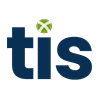Treasurers – the guardians of money – play an important role in all companies. They work to regulate the flow of money by taking a more modern and contemporary approach than ever before. Here we say: Goodbye cash in the closet and hello digital possibilities of the 21st century!
At the same time, however, there is a heavy burden of responsibility on you because if you miscalculate something you will quickly be out of a job and the company will be out of business too. To make sure that doesn’t happen and that your career as a treasurer goes from strength to strength, we have compiled five tips to keep you on the safe side.[/vc_column_text][/vc_column][/vc_row][vc_row][vc_column][vc_column_text]
1. From controller to treasurer
The switch from money management and the associated creation of a treasury department is becoming increasingly common. In summary, here is a brief overview of what you can do to improve your work as a treasurer:
For example, the choice of bank partners should be carefully considered. By investing time in this, you can save fees later. Likewise, liquidity equalization should be reviewed. Cash pooling makes efficient cash distribution, in Europe or globally as well, easier as central financial management offsets excess liquidity or liquidity shortages. The treasury management system used should also be tailored to the needs of the company and its customers. If these have perhaps changed in recent years, an adaptation could be useful. In general, it is important to be able to ensure transparency for customers and within the company at all times in order to strengthen customer confidence and provide employees with all the information they need.
In the absence of transparency and an unclear view of banking activities, you can use the TIS Bank Account Manager. This is because TIS facilitates reduced bank account management to a single SaaS solution, allowing you to control all account details. For treasurers TIS is therefore worth its weight in gold.[/vc_column_text][/vc_column][/vc_row][vc_row][vc_column][vc_column_text]
2. From overview to perspective
Having optimized the technical and general structures that help treasurers make their lives easier, it is important to understand the state of the business. A complete overview is therefore priceless! To improve something, you must first know what there is to improve. Which is why a general check of the state of affairs is essential.
Status quo-Check:
1. Which projects are currently running, which are planned and which ones have been completed?
2. Are there any problems with these projects or is everything going as planned?
Then carry out a financial check: You need to find out about the resources that are available and which could be exhausted in any given case. In addition, you should know about the liquidity of the company – where are there still bottlenecks or where could they develop?
Caution! Because that is quickly neglected: Even within your team, you should know and keep track of the sequence of operating processes. This allows you to quickly identify internal vulnerabilities before you start looking for them externally.
Keep this overview up-to-date and expand it to include news and changes. This allows you to detect possible risks for your company at an early stage and reduce or even prevent negative effects. The overview also helps you to assess the support you need from other departments. They will certainly be happy if they do not have to spontaneously provide first aid for the issue but know in good time to integrate this request into their work. This will help you to ensure timely processing and thus, in the long term, to achieve your own goals.
Recognizing the need for action enables you to respond in good time. If you recognize a chance for long-term improvement, the necessary steps should be implemented soon. However, if the possibility of a short-term improvement is recognized, steps must be taken immediately.
As you can see: This overview helps you to no longer miss any room for improvement.
3. Only optimized reporting is also good reporting
Correct and detailed reporting on all current and future projects can play a major role in the success of the treasury department. It goes without saying that some projects work very well without a meticulous protocol, which also takes up a lot of time. However, at some point you may come across an error that cannot be traced back and could trigger a domino-like chain reaction – or maybe not, you don’t know. But would you not rather invest a little more work to be on the safe side? For this reason, optimize the laborious reporting process and fill it with details, so that if a problem arises later, you can directly identify and fix the source.
For the creation of a plan, the following guiding principle applies: Optimistic but realistic.
4. A planned approach to success
If you have a clear view of the current situation of the company, think about future successes and goals. To do this, you should create an accurate roadmap listing all projects, tasks, customers, etc. After you know what you want to achieve in the future and what your goals are, record them as well. Divide your goals into long-term, medium-term or short-term achievements and prioritize them. Look for a way to reach the goals from the current situation. The previously provided overview will help you immensely in evaluating the implementation options!
If a goal does not seem possible at the moment, shift it to a later date, but do not forget it. However, if you have found a way, get down to planning or directly to implementation.
Tip:
Always remember to get the consent of all stakeholders. Be firm, yet also accept if a co-worker names good reasons to postpone a goal.
5. Silence is silver, talking is golden
Even if the opposite opinion prevails in everyday life, as a treasurer you should maintain good communication lines with all stakeholders. Hold regular meetings with your team. This helps you to always keep an eye on the current status of projects. Introduce project completion reports and align your expectations with those of your colleagues. It is important to keep to your timetable and that objectives to be achieved are accessible at all times. You should not only keep your close colleagues updated, but also those stakeholders in other departments. This will allow you to obtain approval for the funds you need in future projects. Good internal communication is therefore important, what’s more, contact with external partners and customers is also crucial for successful cooperation. Here in particular you need to identify and fix problems quickly to prevent things from getting worse.
Tip:
In general: Especially when introducing new work processes too much is better than too little. Inadequate communication leads to misunderstandings and poses a risk to the success of the projects. If you notice that some meetings and reports are superfluous, reduce these.
Unfortunately, as is often the case in life, there is no guide to guaranteed success. However, with these five tips, you are on the right path. It is important that you do not lose sight of your actual tasks during all the coordination work. Create an (imaginary) list of tasks to complete. It should strike a balance between your actual tasks, such as financial planning, hedging financial risks or maintaining contact with banks and capital markets and the coordination you have to provide. Usually one goes with the other, but neither should gain the upper hand alone. Stay focused!





